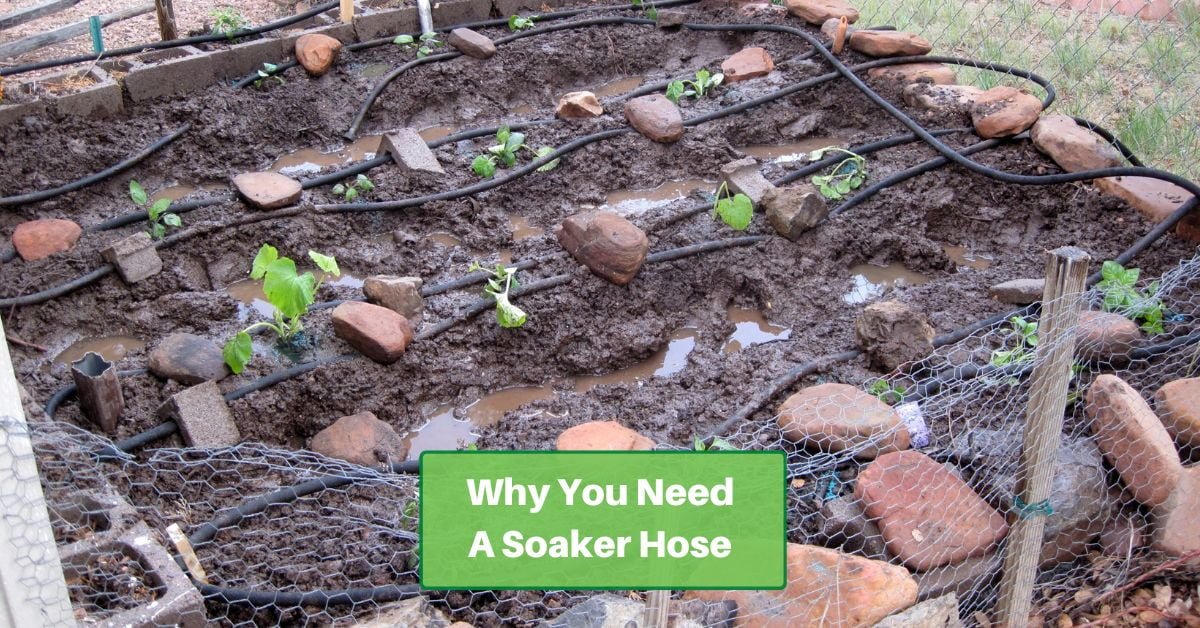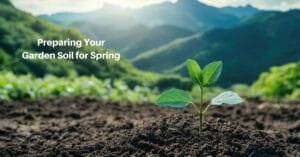As gardening enthusiasts, we all look for innovative and efficient ways to nourish our plants while conserving water and minimizing effort. One such innovation that has gained popularity in recent years is the soaker hose. This simple adaptation improves how we water our gardens, providing numerous advantages for both novice and experienced gardeners.
In this article, we’ll explore why soaker hoses are so useful, the advantages they offer, the types of plants they benefit, how to make a homemade soaker hose, where to purchase them, and other important information.
The Power of Soaker Hoses
Soaker hoses, also known as drip hoses or porous hoses, are specialized garden tools that deliver water directly to the root zones of plants. Unlike traditional watering methods like sprinklers or hand watering, soaker hoses release water gradually and evenly along their entire length. By controlling and targeting the watering, this method offers several key advantages for gardeners:
Water Efficiency
Soaker hoses are more water-efficient. They minimize wastage by delivering moisture directly to the root zones, reducing evaporation and runoff. This is especially crucial in regions with water restrictions or drought-prone areas.
Disease Prevention
Soaker hoses keep foliage dry. This helps reduce the risk of fungal diseases that thrive in damp conditions. This is particularly beneficial for plants susceptible to issues like powdery mildew and leaf spot.
Weed Control
By delivering water only to your plants’ roots, soaker hoses help limit weed growth in surrounding areas, since weeds require consistent moisture to thrive.
Time-Saving
Once installed, soaker hoses require minimal effort to maintain. Gardeners can set them up on a timer and let them do the work, freeing up time for other garden tasks.
Root Health
Soaker hoses encourage deep root growth as they encourage plants to seek water at lower soil levels, making plants more resilient during dry spells.
Plants That Benefit Most From Soaker Hoses
Soaker hoses are versatile and can be used in various garden settings. They are particularly useful for the following types of plants:
Vegetable Gardens
Soaker hoses are a fantastic choice for vegetable gardens, as they ensure consistent moisture for crops like tomatoes, peppers, and cucumbers, resulting in healthier, more abundant harvests.
Flower Beds
Soaker hoses can be discreetly hidden beneath mulch in flower beds, delivering water directly to the roots of flowers and reducing the need for frequent hand watering.
Shrubs and Trees
Young trees and shrubs benefit from soaker hoses, as they promote deep root development. This is especially crucial during the establishment phase.
Container Gardens
For potted plants on patios or balconies, soaker hoses can be coiled around containers to maintain consistent moisture levels.
Creating a Homemade Soaker Hose
If you have an old garden hose lying around, you can easily convert it into a homemade soaker hose. Here’s a simple guide:
- Materials Needed: You’ll need a garden hose, a drill with a small drill bit, and a hose cap or end plug.
- Drill Holes: Using the drill, create evenly spaced holes along the length of the hose. The size and spacing of the holes will determine the water flow rate. Experiment with hole size and spacing until you achieve the desired flow rate. Of course, that means you should start small and make them bigger if necessary!
- Seal the End: Attach a hose cap or end plug to seal one end of the hose, preventing water from escaping at that end.
- Test It Out: Connect the homemade soaker hose to your water source and turn it on. Adjust the water pressure as needed to achieve the desired flow rate and coverage.
Where to Buy Soaker Hoses
While making a homemade soaker hose is an option, you can also purchase ready-made soaker hoses from garden supply stores, home improvement centers, and online retailers. They come in different lengths and materials to suit your specific needs.
Soaker hoses are a valuable addition to any garden. They’ll help your plants get water more efficiently – which is good for the environment and your wallet. That can also mean the plants stay healthier and save you time in your busy schedule!









